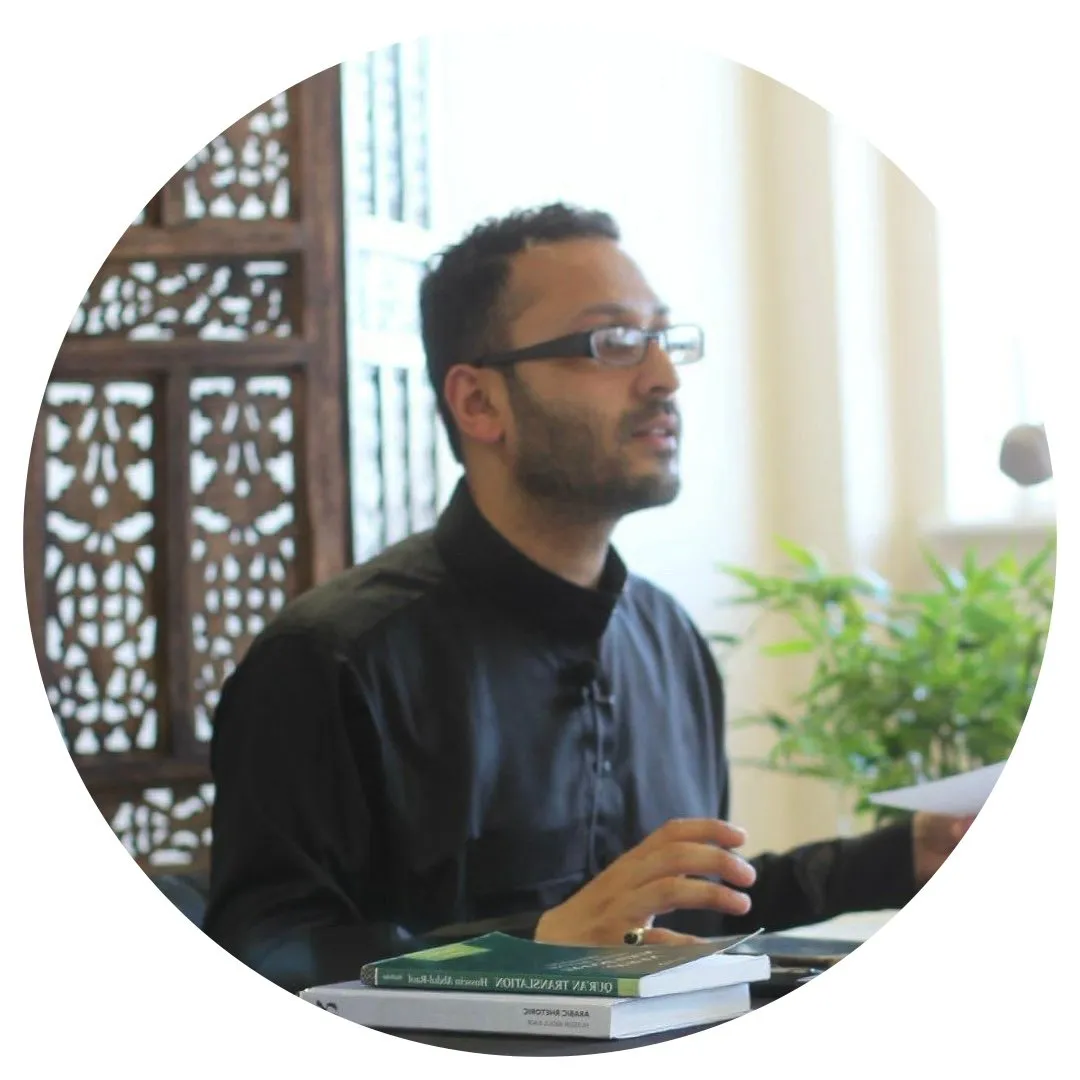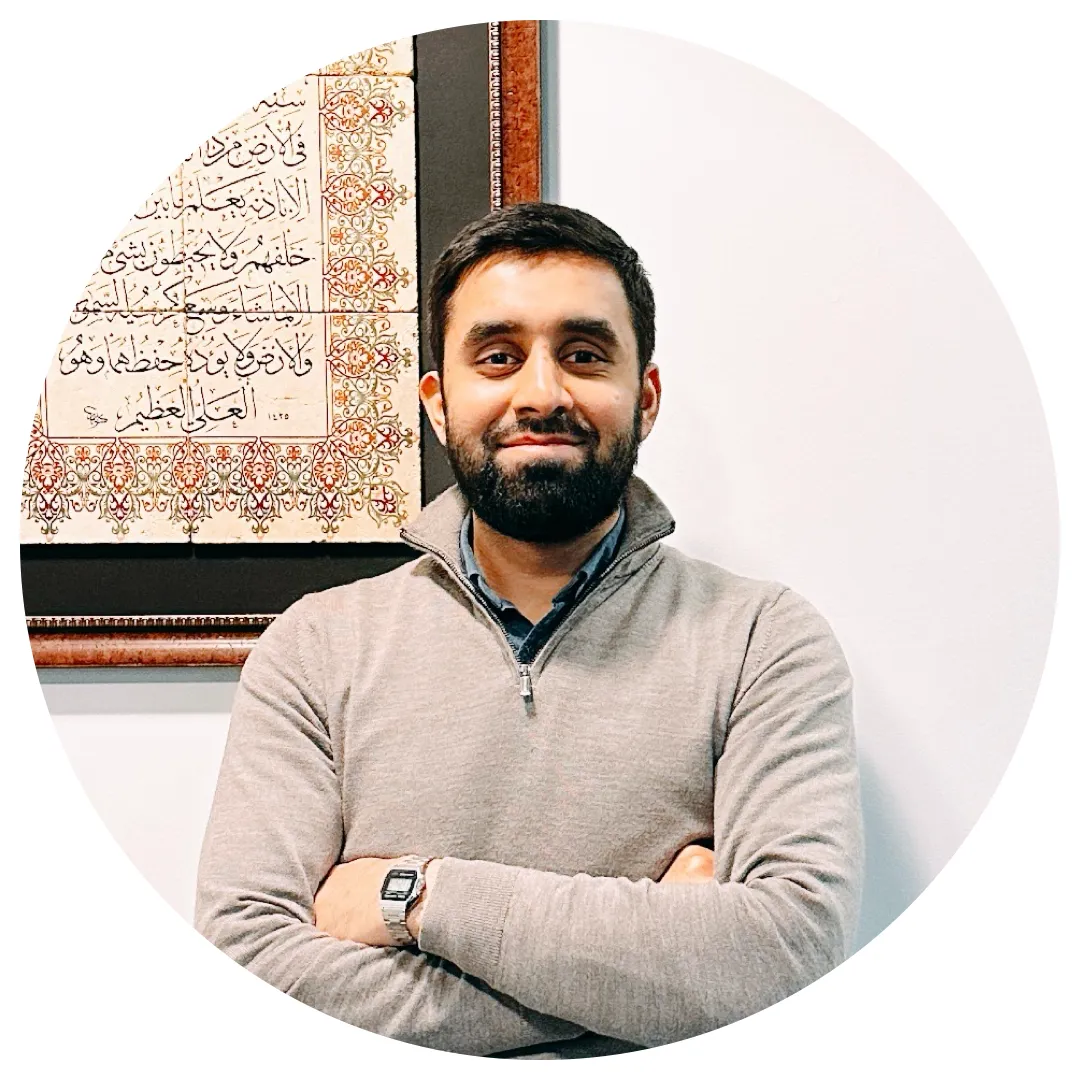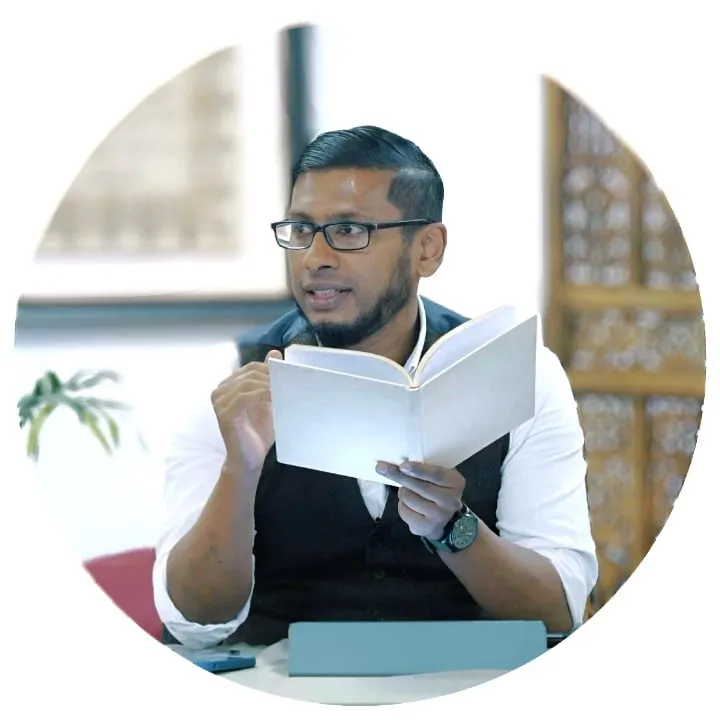With Dr Shaykh Safaruk & Mufti Moinul | 10 Weeks | Onsite & Online | Starts 27th January 2024
A Course By The Ummatica Department Of The Quran Institute
The Ummatica Department plays a pivotal role in the overall vision of the Quran Institute. It bridges the gap between Islamic Studies and the Occidentology departments by addressing how Islam deals with modernity i.e immense real changes in states, societies, families and in s science and technology.
The Ummatica Department is being lead by Dr Safaruk, an established academic within numerous fields of the Islamic sciences, ranging from Political Philosophy and a theology. A full curriculum will be released in the near future on our diploma page https://www.ummatica-diploma.com
Ummatica cross examines revival with a positive and outward looking framework, to procure a solely Islamic solution for humanity. Our aim is to explore contemporary discourses on how the concept of Ummah and how traditional sources discuss the re-positioning of the Ummah as a leading light of justice peace for humanity.
Our modular approach that constitutes the Ummatica Diploma is there to facilitate thinkers to develop solutions for humanity from an Islamic philosophical basis, transitioning from a problem based mentality that often spirals within narratives that limit us to apolitical spiritual introspection void of any far reaching vision and activism.
Course Information
Over the centuries there have been many collections of hadith compiled with the intention of reminding the Muslims the ahkam of Allah so as to apply them in their lives. The most famous, that many have read and benefitted from, is the Forty Hadith compiled by Imam Nawawi. But today the most neglected of the commands of Allah is the command to rule by what Allah has revealed to His Prophet (pbuh). This course is composed of a brief compilation of hadith related to ruling. It is a small selection but it is hoped that it serves to illustrate how central to Islam was its ruling system, and the manner of the just ruler as opposed to the characteristics of the evil one, and the nature of the application of the rule, the role of the Ummah in accounting those in authority, and the painful consequences if this is neglected. - Abu Luqman Fathullah (Compiler of book)
Meet Your Instructors

Dr Shaykh Safaruk
Instructor

Ustadh Ibrahim
Course Coordinator

Mufti Moinul Abu Hamza
Instructor
Instructor Information
Mufti Monul Abu Hamza
Mufti Moinul started his journey in Egypt in Hifz and Qira'ah privately with Shaykh Khaled from Al-Azhar and then he passed his exams in Qira'ah and Hifz at Ma'had Ma'sarawi with high grade. He also studied Arabic Grammar, Morphology and Rhetoric at Dar Al-Arabiyyah Egypt with Shaykh Ahmed Aljendy. Upon his return, he was awarded his Alimiyyah Qualification under the tutelage of Sheikh Akram Nadwi at the Al-Salaam Institute, London which is authorised by Dar Al-Uloom Nadwatul-Ulama, Lucknow, India. He then graduated in his Takhassul fil Ifta at Darul Iftaa Birmingham under the tutelage of Mufti Tosir. Mufti Moinul then travelled again and attained Ijazaat from the following shuyoukh in Al-Maghrib from the city of Rabat and Fez and then Ijazaat from scholars from Makkah Al-Mukarramah and Madinah Al-Munawwarah.
Shaykh Safaruk Z Chowdhury
Ph.D. in Islamic Studies. Area of study: Sufism, SOAS, London, UK. M.A. Islamic (distinction). SOAS, London, UK. B.A. Philosophy. Kings College London, London, UK. A.K.C. Associate of Kings College. Christian Theology. Kings College London, London, UK. Diplo. Arabic, Ministry of Education, Cairo, Egypt. Accrediting body: Wizarat al-Ta’lim.
Ustadh Ibrahim Haider
Ustadh Ibrahim works in Business Development and Strategy with a BSc Honors in Actuarial Science. Currently working towards his Alimiyyah, he is a keen student of the Islamic Sciences, Islamic Revivalist thought and Tazkiyyah, with the conviction that they are integral in bringing about solutions for the Ummah. He is involved in youth projects, runs his local madrasah and is a passionate teacher of the Islamic Sciences and Critical Thinking at the Quran Academy and Global Madrasah.
Progression Potential
Over the centuries there have been many collections of hadith compiled with the intention of reminding the Muslims the ahkam of Allah so as to apply them in their lives. The most famous, that many have read and benefitted from, is the Forty Hadith compiled by Imam Nawawi. But today the most neglected of the commands of Allah is the command to rule by what Allah has revealed to His Prophet (pbuh).
This course is composed of a brief compilation of hadith related to ruling. It is a small selection but it is hoped that it serves to illustrate how central to Islam was its ruling system, and the manner of the just ruler as opposed to the characteristics of the evil one, and the nature of the application of the rule, the role of the Ummah in accounting those in authority, and the painful consequences if this is neglected. - Abu Luqman Fathullah (Compiler of book)